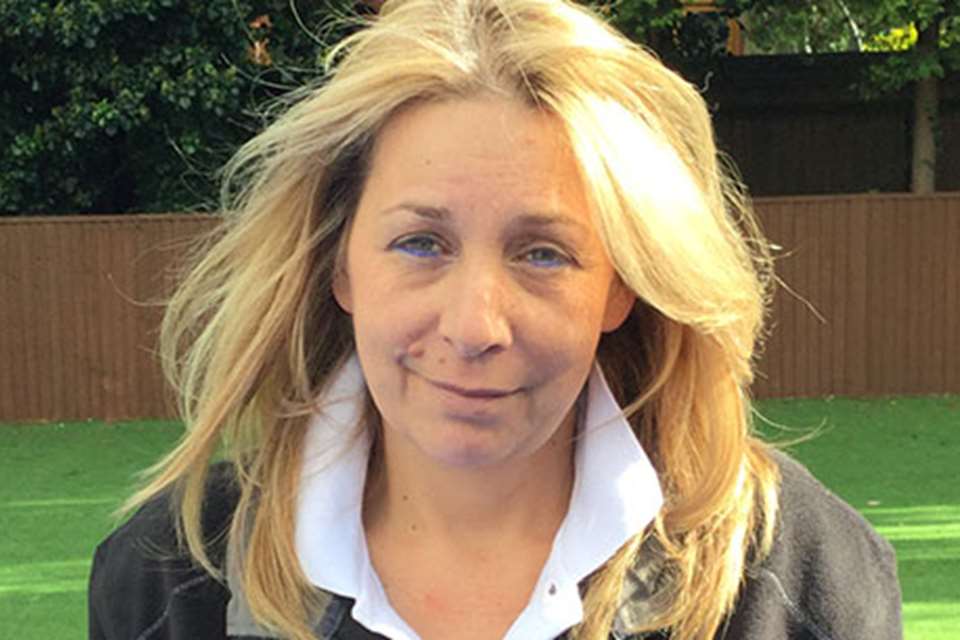Nursery Management: Campaigning - Make a stand
Monday, September 17, 2018
Recruitment crisis, 30 hours, rising costs… for those in the early years sector, it’s easy to feel beaten at the moment. But there are ways to challenge authority if you know how, as campaigner Jo Parkes reports

Download this article as a pdf
In politics, it often appears that decision-makers are divorced from the public. Disenfranchisement can trigger a range of emotions: disappointment, anger, and then a desire to fight back. Eventually, depending on how long the fight goes on, there is often a feeling of burn-out, but a good battle plan can help avoid wasting valuable energy and early fatigue.
Purnima Tanuku, chief executive of the National Day Nurseries Association (NDNA), says reason, persistence and patience will let your arguments take effect over time.
‘Politicians tend to listen to reasoned argument and evidence, which is why we spend time carrying out thorough research within the sector. This is what gets you a place at the negotiating table when you are listened to and responded to.’
Shannon Pite, press and public affairs director for the Pre-school Learning Alliance, says it is one thing to say that you dislike a Government policy, ‘but what’s critical is being able to demonstrate, with evidence, precisely why it’s bad’.
To this end, in 2014 the alliance commissioned Ceeda to produce an analysis of the true cost of providing childcare, which Ms Pite says became an ‘absolute game-changer for the debate on early years funding’, adding, ‘It was the first robust analysis of the cost of delivering childcare, and because it was independent, it couldn’t be simply dismissed by Government – even though they initially tried.’
She continues, ‘Ceeda’s ongoing research into delivery costs means that, when we’re asked by politicians “OK, so how big is the shortfall?”, we can give a precise figure, which is critical when you are trying to make the argument for more funding.’
Equally, settings should be able to talk actual figures when explaining to a politician what impact the 30 hours is having on them.
SUCCESSES
As well as putting underfunding on the media agenda, other important wins have been business rates in some parts of the UK, with Scottish nurseries winning 100 per cent exemption, and many Welsh nurseries are now also getting relief after an NDNA campaign.
In Harrogate, a provider-led campaign also won a 50 per cent reduction in rates.
The sector has also won changes to the minimum grade C GCSE requirements for the Early Years Educator qualification, after a sector-wide campaign led by awarding body CACHE.
Other notable successes include a reduction of top-slicing on funding rates by councils to 5 per cent, and Ofsted inspections being moved back in-house following the Ofsted Big Conversation.
This advice applies to grassroots campaigns as well as to high-level organisations such as Ms Tanuku’s. In summer 2016, parents and staff from King’s Pre-School in Byfleet did some focused reading on Surrey County Council policy. They realised that the threatened closure of their setting to make way for school places could be in breach of the local authority’s own Education Achievement Plan. This gave the campaign a strong base for discussions, and the group spoke at a public council meeting.
According to campaigner and parent Carmen Aubry, a petition as well as King’s raised media profile helped push it up the council’s agenda and the campaign succeeded. ‘Nobody wants bad PR,’ remarks Ms Aubry.
NOT ENOUGH TIME?
Cheryl Hadland, owner of Tops Day Nurseries, believes that if settings do one thing to campaign for change, it should be to invite their local Member of Parliament to visit them.
‘If every setting did this, that would have a real impact,’ she says.
MPs are away from Westminster on Fridays working in their constituencies, which happens to be a quieter day for many settings and a good time to grab the politicians’ attention, notes Ms Hadland.
She adds, ‘MPs like being photographed with children by the press and their parents are big voters. There are 2.6 million parents with children in childcare, plus 400,000 sector workers – that’s quite a lot of votes.
‘Tell them there are nurseries closing because they can’t charge top-ups to cover the shortfall. This is relevant particularly in deprived areas. Give them the Ceeda research.’
Ms Hadland is able to devote time to campaign strategy beyond the limits of her business.
‘I do feel like I’m in a privileged position and I’m quite happy to get out and do something about it,’ says Ms Hadland.
She was a key force behind setting up the All-Party Parliamentary Group (APPG) for Early Education and Childcare during the past year.
The group is a way of raising the sector’s concerns among those with the power to change things. During an APPG event in Westminster in July, for example, settings took the opportunity to lobby more than 50 MPs from across the country about the problems with 30 hours and other issues. Those in attendance included Liberal Democrat leader Vince Cable and APPG chair Tulip Siddiq, with many pledging to write to the Education Secretary to raise these concerns.
Asked what keeps her going, Ms Hadland says, ‘It’s just as well I’m a persistent little fighter. Compared to the 80s and 90s, things are moving in the right direction. The APPG has brought us together, and that’s great. We’re trying to get the Government to listen.’
COME TOGETHER
Nicole Politis, chair of St Helen’s NDNA network and director of Portico Day Nurseries, has also worked hard locally to improve life not just for herself but local settings too.
Ahead of the 30 hours roll-out in 2016, she enlisted the help of St Helen’s MP Conor McGinn. The politician spent time to understand the workings of the funding system and set up a meeting between a dozen providers and the local authority, with positive results.
‘The LA sat down to listen to us,’ says Ms Politis. ‘It wasn’t just one voice or one nursery moaning.’
Hers is a multi-pronged approach bringing together knowledge of the political system, a good grasp of the model agreement, as well as developing good relationships with the local authority, other settings and also parents.
Ms Politis predicts that ‘the next step has to be to form some kind of trade body representing everyone’.
She says she often directs parents to the Champagne Nurseries on Lemonade Funding animation to help her communicate why it is inaccurate to say the funded hours are ‘free’, adding, ‘As long as you’re transparent and they know what you’re charging from the outset, they tend to understand.’
Her advice: ‘You have to get a business head on. Read the regulations and understand them. If you don’t understand them, then link up with a sector organisation and members of your local network.’
While some settings might be instinctively against working with what they see as the competition, Ms Politis believes the benefits can outweigh any negatives.
‘Don’t be afraid to bring in the competition and work together,’ she says. ‘For me, working together has been the main thing.
‘If one is going to put our prices up, we ring the others to make sure we’re not undercharging or overcharging for the level of care we’re offering. We also do things to reduce costs, such as share training.’
Anthony Duriez, who runs Forbes Nursery and chairs the NDNA network in Edinburgh, has mobilised parents to great success in the past, helped by the fact that one parent is Member of Scottish Parliament Daniel Johnson.
‘Daniel is our MSP and he has a child at the nursery,’ says Mr Duriez.
Scotland is at a formative stage in its childcare funding programme and Mr Johnson raised local concerns in the Scottish Parliament.
Mr Duriez himself has two young children and another due at any moment, so as well as his business and sector responsibilities, he has his work cut out.
‘It’s learning how to channel that energy to make it effective rather than sitting about moaning: moan at the right people,’ he says.
LEGAL QUESTION
All agree that focused lobbying seems to be the best approach, but sometimes the legal route is necessary – for example, to fight Ofsted judgements or late payments.
Andrew Manners, of Morgan LaRoche Solicitors, says a ‘Letter Before Action’ can be an effective way of getting the authorities to up their game generally.
‘If they think the decision is going to be taken to judicial review then they’re more likely to scrutinise the process,’ he says.
While he hasn’t yet challenged any councils for late payments, he says it would be possible.
‘Settings may not feel it’s worth challenging, but if settings in a particular area can demonstrate a pattern of late payments, with consequences such as staff being laid off and closures, there may be a good chance of mounting a successful challenge,’ says the solicitor. ‘This could be a judicial review or an action for breach of statutory duty.’
Settings can also challenge an LA’s Notice of Termination of their funding agreement if they are appealing an Ofsted judgement. Depending on evidence, the LA can reinstate the agreement pending the outcome of the complaints process.
Campaign Survival Kit
? Petition – 100,000 signatures can trigger a debate in Parliament. See: https://petition.parliament.uk
? Join a sector organisation
? Forge local provider links
? Consider involving parents
? Get informed
? Involve politicians: ward councillors and constituency MPs
? Media: contact local papers and radio with a succinct press release, accurate facts and stats and a clear call to action
? Consider legal action










